- U.S. Coins /
- Commemoratives /
- Silver Commemoratives /
- 1928 50c Oregon Trail MS
1928 50c Oregon Trail MS

1928 50C Oregon MS68 PCGS....
Source: Heritage Auctions
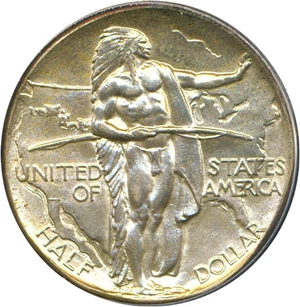
1928 Oregon 50c PCGS/CAC MS66
Source: David Lawrence Rare Coins
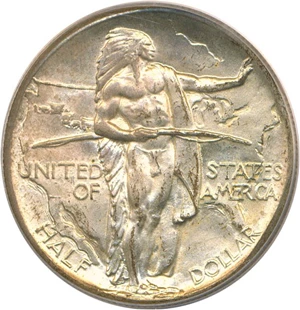
1928 50c Oregon PCGS MS67
Source: David Lawrence Rare Coins
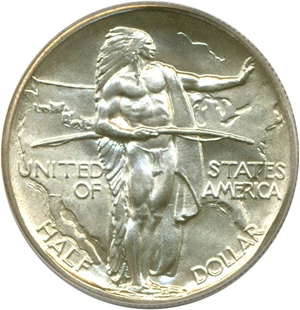
1928 50c Oregon PCGS MS65
Source: David Lawrence Rare Coins
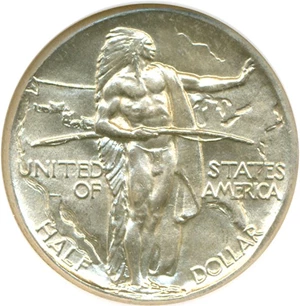
1928 50c Oregon NGC MS64
Source: David Lawrence Rare Coins
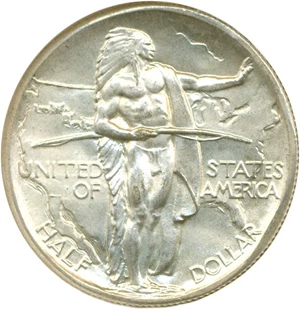
1928 50c Oregon DGS MS65
Source: David Lawrence Rare Coins
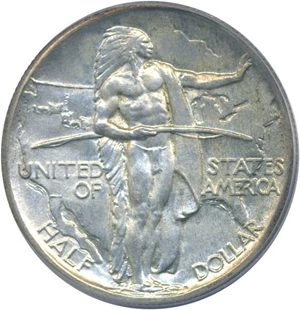
1928 50c Oregon PCGS MS65
Source: David Lawrence Rare Coins
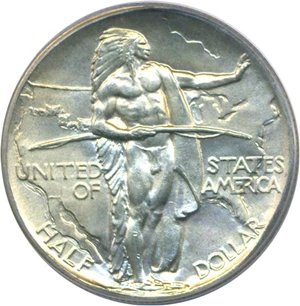
1928 50c Oregon PCGS MS67
Source: David Lawrence Rare Coins
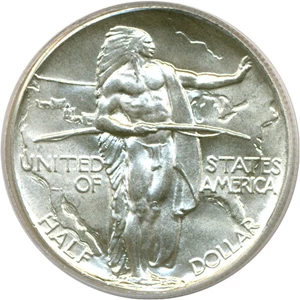
1928 50c Oregon PCGS MS66
Source: David Lawrence Rare Coins
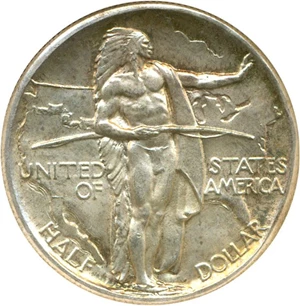
1928 50c Oregon NGC MS64
Source: David Lawrence Rare Coins

1928 50c Oregon NGC/CAC MS66
Source: David Lawrence Rare Coins

1928 50c Oregon NGC MS66
Source: David Lawrence Rare Coins
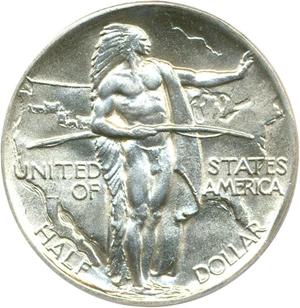
1928 50c Oregon PCGS MS64
Source: David Lawrence Rare Coins
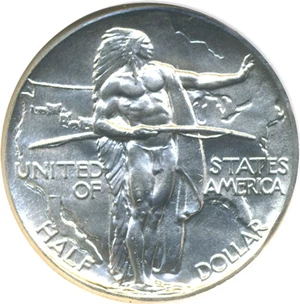
1928 50c Oregon NGC MS66
Source: David Lawrence Rare Coins

1928 50c Oregon NGC MS66
Source: David Lawrence Rare Coins
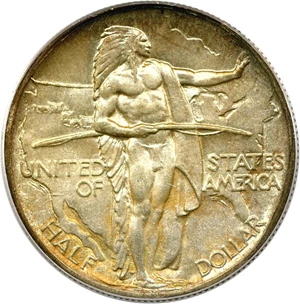
1928 50c Oregon PCGS MS66
Source: David Lawrence Rare Coins
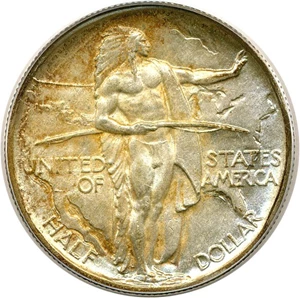
1928 50c Oregon PCGS MS65
Source: David Lawrence Rare Coins
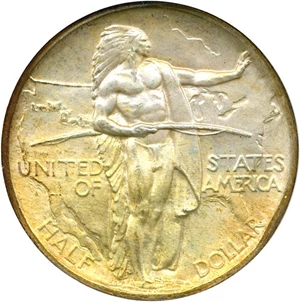
1928 Oregon 50c NGC MS67
Source: David Lawrence Rare Coins
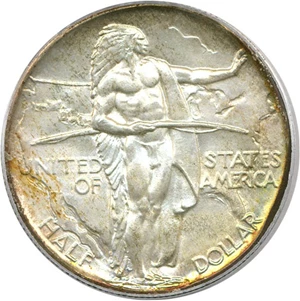
1928 Oregon 50c PCGS/CAC MS67 * Color *
Source: David Lawrence Rare Coins

1928 Oregon 50c NGC/CAC MS67
Source: David Lawrence Rare Coins




















Greysheet Catalog Details (GSID: 10340)
All Oregon Trail half dollars to come after the first year of issue in 1926 are much scarcer than those first production runs from the Philadelphia and San Francisco Mints. The problem was, not all of the 1926 Oregons were sold, and many ended up in the smelting pot. Meanwhile, the United States Mint had struck a total of 50,028 Oregon halves in 1928 but would not release them until the 1926-dated pieces were sold first.
The 1928 Oregon half dollars would not hit the market until 1933, when the earliest Oregon half dollars from 1926 were either all sold or melted. Enterprising numismatic publisher and author Wayte Raymond offered to pitch the 1928 Oregon half dollars to the buying public on the condition that all but 6,000 be melted, making the coin artificially scarce. US Mint officials agreed, dumping all but 6,028 of the 1928-dated Oregon halves in the fire. The 1928 issues were sold for $1 apiece.
The 1928 Oregon half dollar, designed by husband and wife coin designers James Earle Fraser and Laura Gardin Fraser, shows on its obverse a Native American before a map of the continental United States highlighting the path of the Oregon Trail, while the reverse shows a cattle-driven stagecoach heading toward a sunset. The coin commemorates the historic 2,000-mile path across the western United States as well as the many pioneers who died along the way.
The 1928 Oregon half dollar is moderately scarce today, with examples MS67 or higher proving quite rare. Most of the uncirculated 1928 half dollars exhibit decent strike and luster.
Obverse: The obverse shows a Native American standing before a geographical map of the continental United States, with an indication of the actual Oregon Trail across the applicable portion of map.
Reverse: The reverse shows a cattle-drive stagecoach rolling over a hill with a large sunset shining in the background.
Catalog Detail
Greysheet & CPG® PRICE GUIDE
Related Stories (powered by Greysheet News)
View all news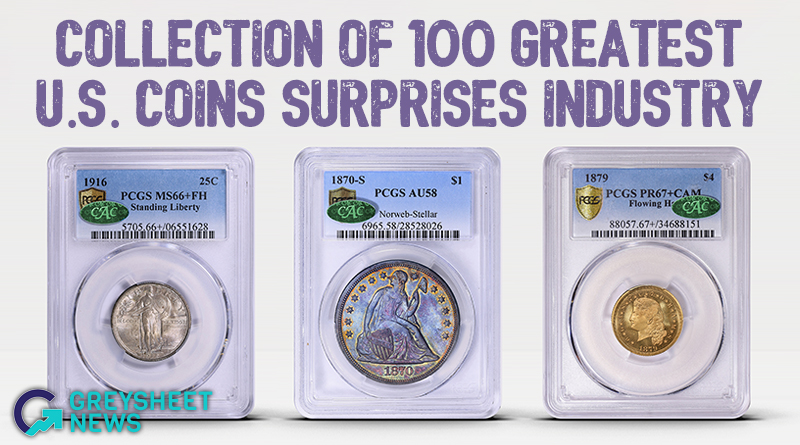
Daily reveals on MyCollect include many major rarities featured in 100 Greatest U.S. Coins book by Jeff Garrett.
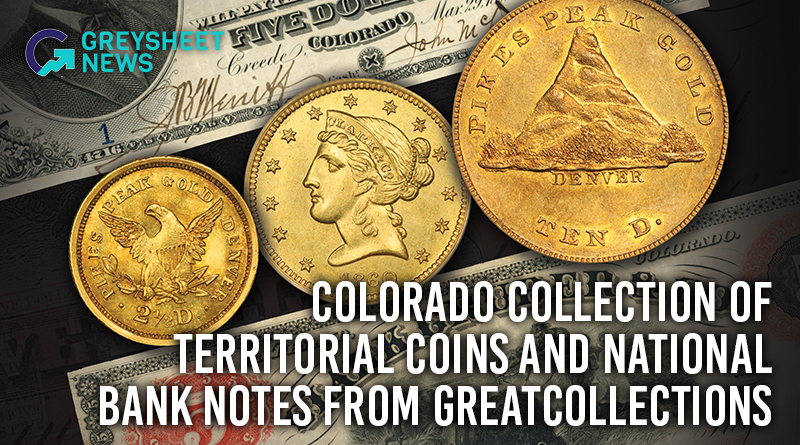
Includes High Grade Clark Gruber Gold Coins & Unique Creede National Bank Note
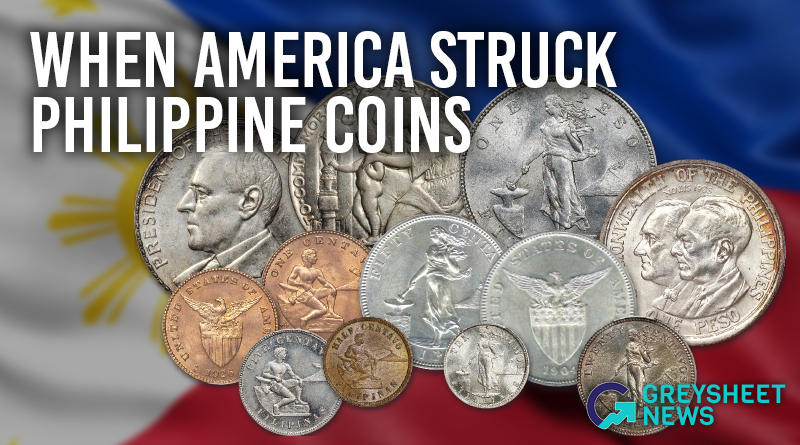
When the United States took control of the Philippines, Congress enacted the Philippine Coinage Act of 1903 which established a new currency system based on the United States gold standard.
About CDN Prices
All CDN prices are based on proprietary market knowledge and technology developed by CDN Publishing, LLC.
CPG® prices represent retail levels. Collectors should refer to CPG values as a starting place for their negotiations, or auction bid reference.
Greysheet/Greensheet prices are wholesale market levels for collectible coins/paper money intended to indicate what a dealer, or wholesale, buyer would pay for the described item in the specified grade. Greysheet/Greensheet represent "sight-seen" values based on a buyer's in-hand review. The actual value can be more or less than this depending on factors including eye appeal and market timing.
Bluesheet (NGC & PCGS) prices represent the highest sight-unseen offers to buy on dealer networks like CDN Exchange. In many cases, there are no active sight-unseen buy offers, so CDN looks to the recent lowest market values for such an item. For this reason, Bluesheet values typically represent the floor of the market for the specified item. CDN only tracks Bluesheet on certain items.
CAC prices are for U.S. coins that meet the standards of the Certified Acceptance Corporation. You can learn more about CAC on their web site.
Price movement is indicated for price changes in the last 30 days.
The prices listed in our database are intended to be used as an indication only. Users are strongly encouraged to seek multiple sources of pricing before making a final determination of value. CDN Publishing is not responsible for typographical or database-related errors. Your use of this site indicates full acceptance of these terms.


 Dealers Only
Dealers Only




